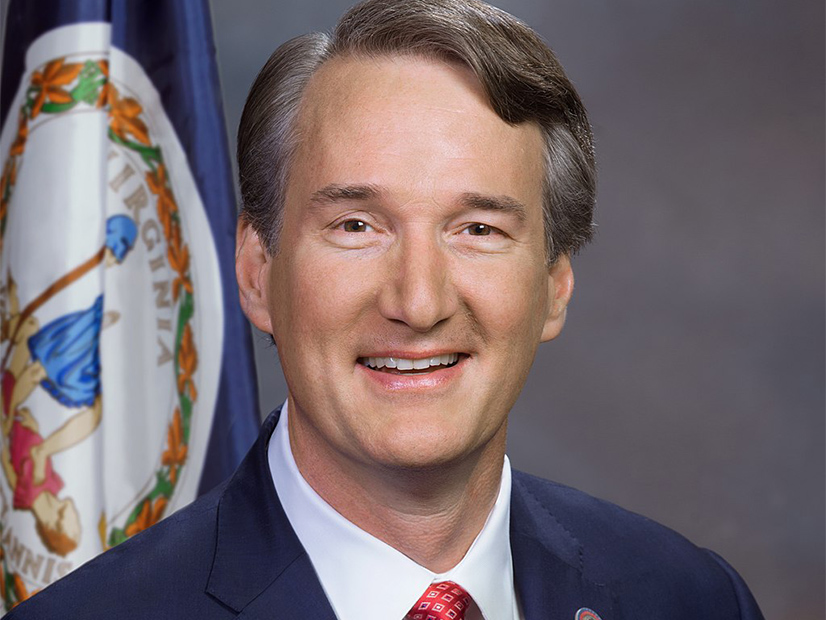Virginia Gov. Glenn Youngkin (R) on Wednesday gave his annual State of the Commonwealth speech, which included calls to change the state’s climate law and end its ties to California’s car emissions regulations.
“Our path forward will embrace the ‘and’ and reject the ‘or’ of energy politics,” Youngkin said to assembled lawmakers and state officials. “With our all-American, all-of-the-above approach, Virginians will get affordable and reliable and increasingly clean energy without being tied to unattainable long-term requirements.”
Youngkin said he wants to work with legislators to change state policies, including limiting long-term carbon goals to be updated every five years instead of setting more ambitious midcentury targets that are currently the law and common in other states’ policies.
Doing so would mean amending the Virginia Clean Economy Act (VCEA), which was passed before Youngkin took office when Democrats controlled the governor’s mansion and the legislature. When Youngkin won election in 2021, Republicans took the General Assembly, but Democrats still control the Senate because its elections are not until November 2023.
The governor called for investments in small modular nuclear reactors, hydrogen, carbon capture and storage, and more effective energy storage resources.
The VCEA requires Dominion Energy (NYSE:D), the largest utility in the state, and American Electric Power to increase the share of renewables in their generation fleets every year. But any other clean resources, including the state’s two existing nuclear power plants, are subtracted from the baseline of resources that must be replaced with renewables, Advanced Energy United Managing Director Harrison Godfrey said in an interview.
“We wanted to make certain that the VCEA didn’t essentially require double decarbonization,” said Godfrey, who worked to help pass that legislation. “If we’re already getting zero-emission generation from nuclear facilities, we don’t need to go back and also have renewables cover that.”
If any of the new resources that Youngkin wants to fund are able to come online, then they would also be subtracted from the renewable requirement of the VCEA, he added. However, small modular reactors and the other technologies have not been proven to be commercially viable yet.
Virginia has seen its energy prices rise, but Godfrey argued that the shift to clean energy and away from natural gas would lower energy prices because gas, which supplies about 60% of Dominion’s electricity, has seen its price go up recently and has dragged power prices along with it.
“We shouldn’t have policies that just run towards whatever the least-cost resource is in that moment and constantly shift with the winds; that’s what the governor is proposing here,” Godfrey said. “Setting clear, long-term goals and having a glide path to take us there is the way to both ensure that we have a system that is reliable, is affordable over the long-term and moves us towards being steadily cleaner.”
To the extent the VCEA’s directions need to be reviewed periodically to ensure that the grid remains reliable and electricity affordable, that can be taken care of by the state’s regulators without sacrificing the long-term goals that give the industry the certainty it needs to make necessary investments, Godfrey said.
When it comes to withdrawing Virginia from the group of 16 other states that have voluntarily agreed to follow California’s lead on automobile emissions — including its prohibition of new internal combustion engines for light duty vehicles in 2035 — Godfrey called that a false dichotomy.
Virginia cannot set its own standards: If it abandons the California compact, it would just default to the federal standards, which tend to fluctuate depending on which party controls the White House. The auto industry and U.S. consumers are all moving toward electric cars anyways, but the supplies of new vehicles are limited today, Godfrey said.
“Which states and dealers those vehicles are sent to depends entirely upon whether or not there is a standard in place,” he added. “So, if we want Virginians to have access to affordable, sustainable, clean electric vehicles, and plug-in hybrid electric vehicles, then the best way to do that is to be part of this interstate compact.”




